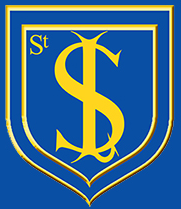Music
Intent
“Music gives soul to the universe, wings to the mind, flight to the imagination and life to everything.” –Plato
At St. Luke’s we believe that music is at the heart of everything because it is a powerful and unique form of communication that can change and impact the way children feel, think and act. Our aim is to provide a music curriculum, which will enable each child to reach their full potential in music, encourage children to enjoy singing, composing and performing and provide children with the opportunity to perform in front of an audience both within and outside of school.
- To develop pupil’s love for a range of types of music and creative thinking. To show love for others when appraising music and enjoying performances.
- To develop the courage to try a new instrument or have the confidence to perform in front of an audience.
- To give and instil hope through the enjoyment of different genres and styles of music. To have hope when composing and creating music.
Implementation
The national curriculum for music aims to ensure that all pupils: perform, listen to, review and evaluate music across a range of historical periods, genres, styles and traditions, including the works of the great composers and musicians; learn to sing and to use their voices, to create and compose music on their own and with others, have the opportunity to learn a musical instrument, use technology appropriately and have the opportunity to progress to the next level of musical excellence; understand and explore how music is created, produced and communicated, including through the inter-related dimensions: pitch, duration, dynamics, tempo, timbre, texture, structure and appropriate musical notations.
At St Luke’s, music is taught weekly through Charanga which ensures that the National Curriculum objectives are delivered and applied to a range of musical instruments. At present, St Luke’s is running two curriculums concurrently since the introduction of the Model Music Curriculum. Upper KS2 continue to follow the original Charanga Scheme whereas the younger year groups have begun with the Model Curriculum. This is to ensure that foundational skills are fully embedded.
Each Unit of Work comprises the of strands of musical learning which correspond with the national curriculum for music:
- Listening and Appraising
- Musical Activities
- Warm-up Games
- Optional Flexible Games
- Singing
- Playing instruments
- Improvisation
- Composition
- Performing
Opportunities are taken to perform in class, in whole assemblies and also to parents and the wider community. There is weekly singing worship and singing forms a core part of additional celebrations, for example Church services.
Additional opportunities are offered in music, by Peripatetic teachers and the school choir, which perform regularly in school and at events in the local community.
Impact
Music assessment is ongoing to inform teachers with their planning, lesson activities and differentiation. Summative assessment is completed at the end of each unit to inform leaders of the improvements or skills that still need to be embedded. In Key stage 1 and 2, the impact of music is assessed throughout the academic year. In Early Years Foundation Stage (EYFS) observational assessments are completed at the end of the reception year. Music comes under the ‘Expressive arts’ area of learning with focus on singing and exploring musical instruments. Music is monitored throughout all year groups using a variety of strategies such as lesson observations, pupil interviews and recordings.
Long Term Overview
Charanga’s Original Curriculum (in place for UKS2)
St Luke’s Progression of Learning
St Luke’s Long Term Overview 23-24
Progression of Skills – Model Music Curriculum [New]
Progression of Skills – Original Music Curriculum
Charanga Information
